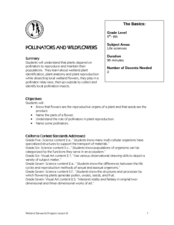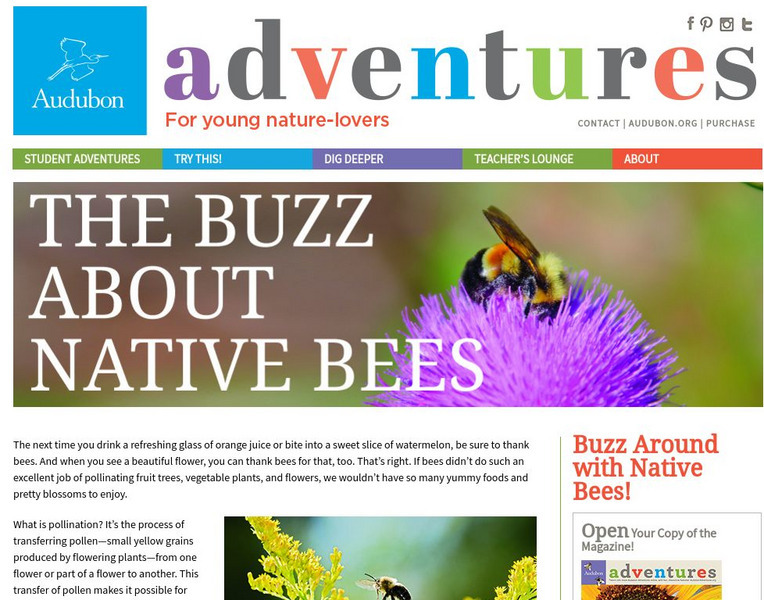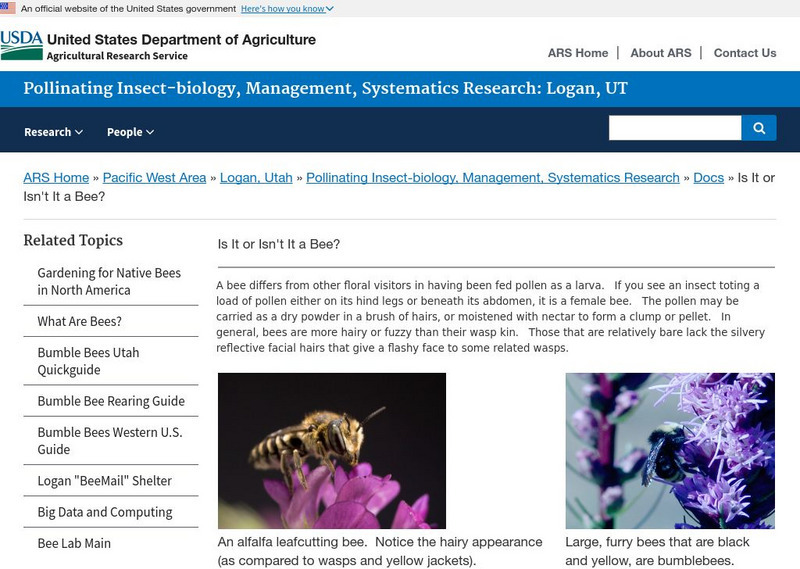Curated OER
Honey Bee Anatomy and Identification
Students examine and dissect a worker honey bee to analyze the structures and functions of honey bees. They draw the structures they see and compare/contrast them to drawings or electron micrographs.
Curated OER
Darwin’s Bees
What do you call a bee born in May? A maybe! This first instructional activity in a series of four begins with a starter activity to get scholars thinking about the topic. Then a circus, or circuit of seven activities,...
Curated OER
Buzzing Bee's Wardrobe
Young scholars investigate the anatomy of honeybees. In this anatomy lesson, students research the physical characteristics of bees and discover what they do. Young scholars create a model of a honeybee showing the correct anatomy.
Curated OER
Those Busy, Buzz'n Worker Bees
Students research information on worker bees. In this insect lesson, students review the body parts of insects and how bees find flowers. They discuss compound and simple eyes and the life cycle of a worker bee.
Curated OER
Cyber Bee Hunt
Students research bees. In this organisms lesson, students participate in a WebQuest to gather information about bees. Students research the different kinds of bees, their body parts, and how they communicate. There is an included...
Curated OER
Living World Quiz 2
In this living world worksheet, students answer short answer questions about animals, the human body, food, and more. Students complete 20 short answer questions.
Curated OER
Pollinators and Wildflowers
Students explore how plants depend on pollinators to reproduce. In this pollination lesson students dissect a local flower and collect and identify pollinating insects.
Curated OER
Insects Are Helpful!
Students see that insects do lots good and are very valuable to humans and nature. This is part of an ongoing effort to dispel fears of insects. They rotate through a series of centers that have examples of how insects contribute to our...
National Audubon Society
National Audubon Society: Audubon Adventures: The Buzz About Native Bees
Resources for learning about the important role bees play in pollinating plants, especially those we eat. Includes a student magazine full of information about bees, an interactive pollination chart, and a quiz.
PBS
Idaho Ptv: Science Trek: Bees
A comprehensive overview of bees. Includes three videos: a half-hour show, a video short, and a short video where an expert answers children's questions. Other features of the site include facts, links, games and activities, a reading...
PBS
Pbs: Nature: Alien Empire
Outstanding site that compliments an insect series on PBS. Interactive presentations include bee anatomy and honeybee hives. Includes interactive puzzles, teacher's guides, and formats for making insect masks.
US Department of Agriculture
Us Department of Agriculture: Is It or Isn't a Bee?
This informative site takes a look at other insects that look like bees but in fact are not. Physical traits and characteristics are commented on for comparison purposes.
Science Education Resource Center at Carleton College
Serc: Investigating Honeybees: Using a Quiz to Access Prior Knowledge
Using Dadant's Honeybee Study Prints, learners learn about honeybee anatomy, reproduction, and behavior.
Other
Insectclopedia: Lesson Plans
A very comprehensive site from pedagonet.com that includes lesson plans on insects for all ages and grade levels. Learners will enjoy learning about insects as you employ these engaging lesson plans in your own classroom.















